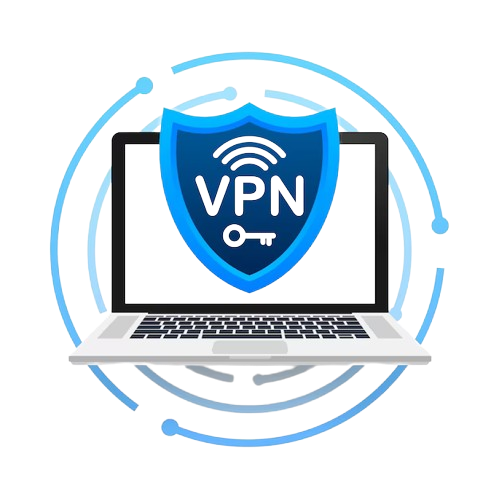What is a VPN?
A VPN, virtual private network, keeps your data safe online from hackers, snoopers, and identity thieves, while providing unrestricted access to blocked websites and services.
Start Now
Why do you need a VPN?
No one likes to be watched or tracked – even if they have nothing to hide. That’s why it’s important you step up your privacy game. Here’s when you need a VPN:
VPN is used to secure your connection on public Wi-Fi, so you can browse in full privacy. Hackers have many methods to steal your data on public Cybers, but with a VPN your online traffic is invisible to them.
Government agencies, marketers, and internet service providers would all love to track and collect your browsing history, messages, and other private data. Best way to hide it? Using a VPN to keep your data to yourself.
If you want to access your home content while traveling around the world, a VPN can help. Install Cyber Shield on your device and never miss a friend’s post on social media.
Like gaming online? You can forget about DDoS attacks and bandwidth throttling with Cybr Shield. Use our Meshnet feature to set up secure virtual LAN parties with your friends.
Avoid targeted pricing, fake websites, and bait and switch attacks with a VPN. Shop securely, knowing your credit card details are safe from snoopers even on public networks.
Watch your favorite TV shows without slowdowns. NordVPN can save your movie night by preventing your ISP from throttling your connection.
How does a VPN work?
A VPN works by creating a secure encrypted connection between your device and a remote server. This way, your data can travel in secrecy instead of through your internet service provider. A VPN hides your real IP address and encrypts your internet connection to make your browsing safer and more private.



How does vpn actually work?
- Authentication
When you connect to a virtual private network service, it authenticates your client with a VPN server.
- Encryption
The server then applies an encryption protocol to all data you send and receive.
- Tunneling
The VPN service creates an encrypted “tunnel” over the internet. That secures the data traveling between you and the VPN server.
- Encapsulation
To ensure each data packet stays secure, a VPN wraps it in an outer packet, which is then encrypted through encapsulation. That is the core element of the VPN tunnel, keeping the data safe during transfer.
- Decryption
When the data arrives at the server, the outer packet is removed through a decryption process.
Frequently Asked Questions
VPN gives you a new IP address and encrypts the connection between your device and the VPN server, so no one can see what data you send and receive. But it won’t make you anonymous — there are other ways someone could track your actions online. Hackers could install malware (keyloggers, spyware, etc.) on your device. Or if you overshare online and use the same username everywhere, anyone with decent googling skills can gather a wealth of information about you.
A VPN is not an all-in-one solution for anonymity but rather an extra layer of security that protects your internet traffic.
You can use other software that offers similar features to a virtual private network, but nothing can replace the all-round security and privacy a VPN offers. A Smart DNS will help you gain access to blocked sites, but it won’t encrypt your traffic. Tor will protect your privacy, but many websites will block your access.
So if you want a service that protects your privacy, gives you a new IP address, and encrypts your data at the same time, opt for a reliable VPN provider.
Yes, if you choose a trustworthy VPN service provider, using it is absolutely safe.
What is a VPN provider you can’t trust? The one that says it’s free. It will track your online activity, what websites you visit, the content you interact with, and sell it to the highest bidder. Why? Because they must maintain hundreds of servers in different countries and hire people to take care of the infrastructure. A service that big has to make money somehow, so you end up paying for it in some way. Besides, a free VPN won’t encrypt your connection properly and might even contain malware or spy on your entire local network.
All of this means that if you do your research and choose the best VPN provider out there, using a VPN isn’t dangerous.
Yes, you should keep your virtual private network on all the time — with a few exceptions. It’s the only way to be sure that your real location and IP address are hidden, online data encrypted, and browsing history invisible to your internet service provider and other third parties.
